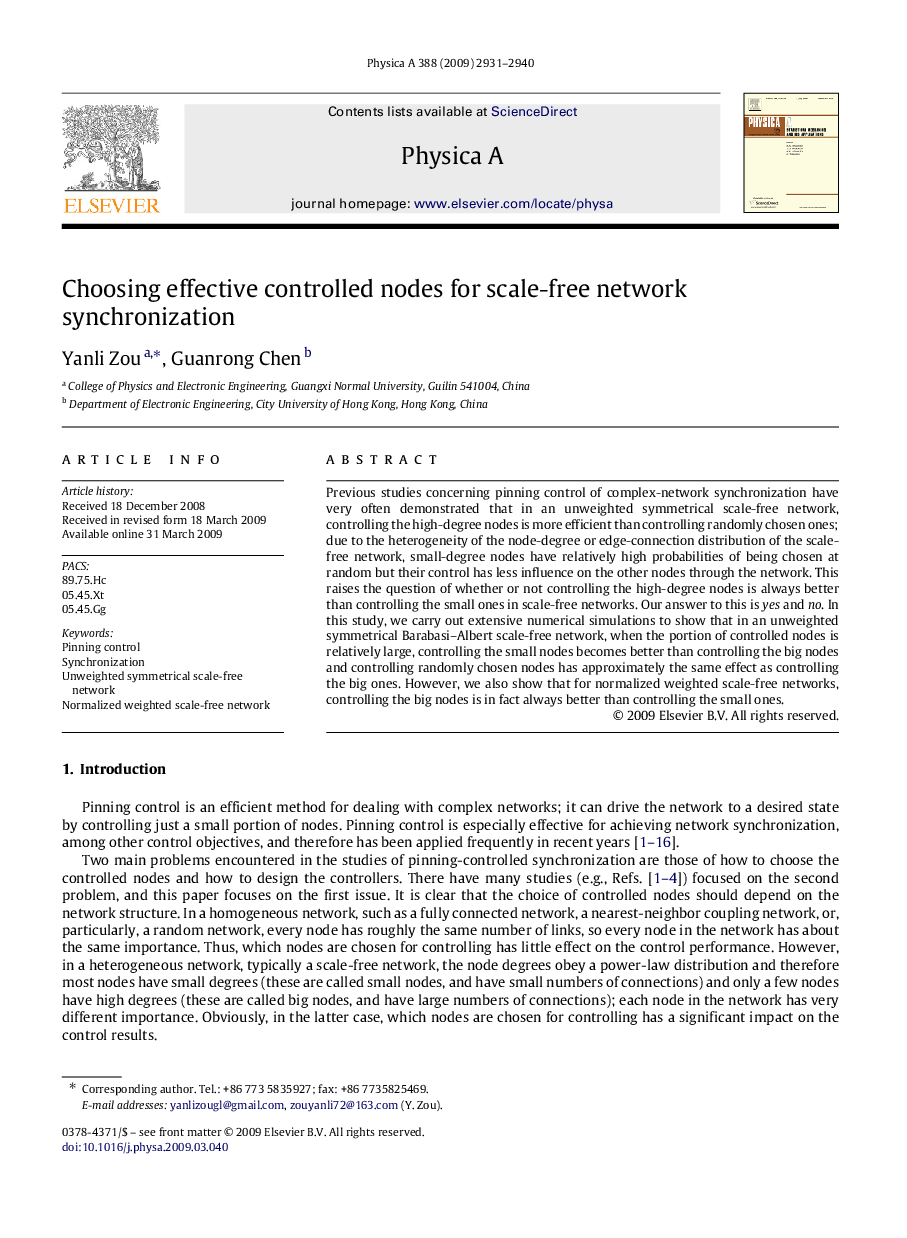| Article ID | Journal | Published Year | Pages | File Type |
|---|---|---|---|---|
| 979384 | Physica A: Statistical Mechanics and its Applications | 2009 | 10 Pages |
Previous studies concerning pinning control of complex-network synchronization have very often demonstrated that in an unweighted symmetrical scale-free network, controlling the high-degree nodes is more efficient than controlling randomly chosen ones; due to the heterogeneity of the node-degree or edge-connection distribution of the scale-free network, small-degree nodes have relatively high probabilities of being chosen at random but their control has less influence on the other nodes through the network. This raises the question of whether or not controlling the high-degree nodes is always better than controlling the small ones in scale-free networks. Our answer to this is yes and no. In this study, we carry out extensive numerical simulations to show that in an unweighted symmetrical Barabasi–Albert scale-free network, when the portion of controlled nodes is relatively large, controlling the small nodes becomes better than controlling the big nodes and controlling randomly chosen nodes has approximately the same effect as controlling the big ones. However, we also show that for normalized weighted scale-free networks, controlling the big nodes is in fact always better than controlling the small ones.
